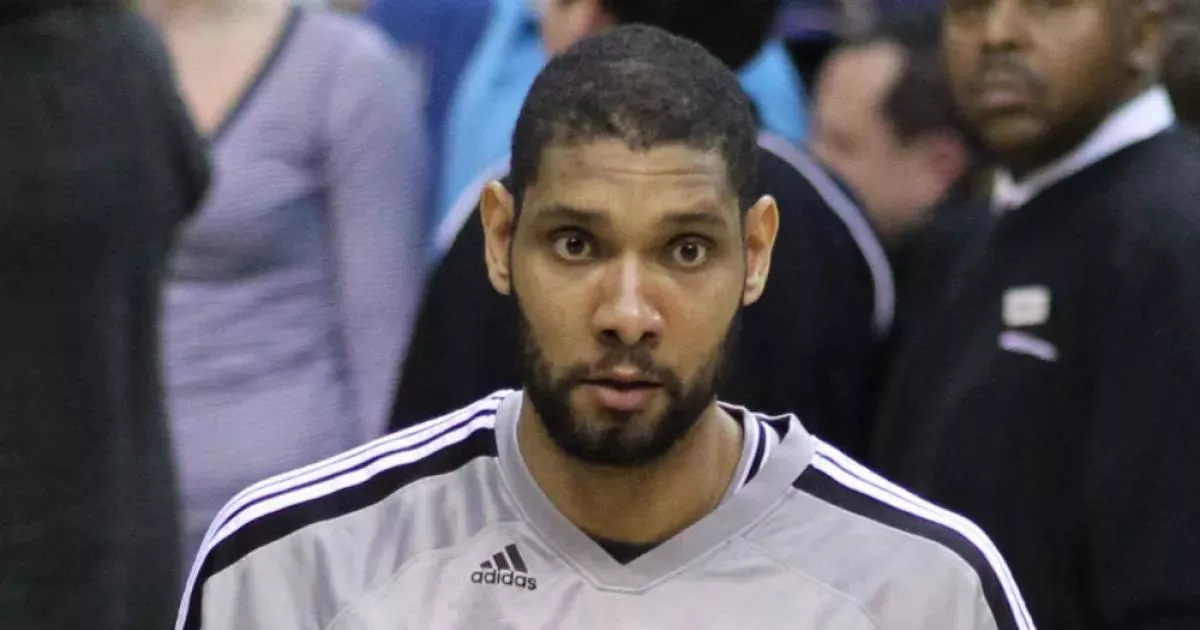Tim Duncan, nicknamed "the Big Fundamental," is a retired American professional basketball player who played his entire 19-year NBA career with the San Antonio Spurs. He's widely regarded as the greatest power forward ever and one of basketball's all-time greats. Duncan was a key player in the Spurs' success throughout the 2000s and 2010s. He was inducted into the Naismith Memorial Basketball Hall of Fame in 2020 and named to the NBA 75th Anniversary Team in 2021.
1973: NBA Started Tracking Blocks
The NBA started tracking blocks prior to the 1973–74 season.
1973: College Rebounding Record
Tim Duncan finished his college career as the all-time leading rebounder in NCAA history in the post-1973 era.
April 25, 1976: Timothy Theodore Duncan Born
On April 25, 1976, Timothy Theodore Duncan was born. He later became a professional basketball player and coach for the San Antonio Spurs.
1987: Robinson Drafted by Spurs
In 1987, David Robinson, who would later become Tim Duncan's teammate, was drafted by the San Antonio Spurs.
1988: Sister Tricia Swims in Seoul Olympics
In 1988, Tim Duncan's sister, Tricia, swam for the U.S. Virgin Islands at the Summer Olympics in Seoul.
1989: Hurricane Hugo Destroys Swimming Pool
In 1989, Hurricane Hugo destroyed the island's only Olympic-sized swimming pool, affecting Tim Duncan's swimming training.
April 24, 1990: Mother's Death
On April 24, 1990, the day before his 14th birthday, Tim Duncan's mother died of breast cancer, leading to a promise to graduate from college.
1992: Dreamed of 1992 Olympic Games
By 1992, Tim Duncan aimed to participate in the Olympic Games as a member of the United States Team in swimming.
1993: Joins Wake Forest
In 1993, Tim Duncan joined Wake Forest University, where he would later play basketball.
1994: Chosen for Goodwill Games and Excels Academically
In 1994, Tim Duncan was chosen to represent the U.S. in the Goodwill Games, and he also worked towards a degree in psychology at Wake Forest University.
1994: Considered NBA Prospect
In 1994, as a sophomore in college, Tim Duncan was considered one of the best prospects among those eligible for the NBA.
1995: All-ACC Tournament and First Team
Between 1995 and 1997, Tim Duncan made the All-ACC Tournament and the All-ACC First Team.
1995: Bulls Home Winning Streak
During the 1995-96 season, the Chicago Bulls set a home winning streak.
1995: Leads Demon Deacons, Named Defensive Player of the Year
In 1995, Tim Duncan led the Demon Deacons, was named Defensive Player of the Year, and earned All-ACC First Team honors.
1995: Leads Team after Graduation of Key Player
In 1995, after Childress graduated, Tim Duncan led the team to a 12-4 ACC record.
1996: New Teammate joins Wake Forest
In 1996, Loren Woods joined Wake Forest and eased the pressure on Duncan.
1996: Leads ACC in Four Categories
In 1996, Tim Duncan led the ACC in scoring, rebounding, field goal percentage, and blocked shots, becoming the first player in conference history to lead all four of those categories.
1996: Named ACC Player of the Year
In 1996, Tim Duncan was named ACC Defensive Player of the Year for the second time and also ACC Player of the Year, but he stayed in college.
1996: NBA Plans Rookie Salary Cap
In 1996, the NBA planned to add a rookie salary cap, however Tim Duncan stayed in college.
1996: Spurs' Injury-Riddled Season
In the 1996-97 season, the San Antonio Spurs had an injury-riddled season with a 20-62 record before drafting Tim Duncan.
January 12, 1997: Duncan Scores 26 Points Against Duke
On January 12, 1997, Tim Duncan scored 26 points and secured 14 rebounds in an 81-69 victory against Duke.
January 24, 1997: Duncan Scores 16 Points Against Clemson
On January 24, 1997, Tim Duncan scored 16 points, secured 15 rebounds, and blocked 5 shots in a 65-62 victory over Clemson.
1997: Enters NBA Draft
After earning his college degree in psychology, Tim Duncan entered the 1997 NBA draft.
1997: All-ACC Tournament and First Team
Between 1995 and 1997, Tim Duncan made the All-ACC Tournament and the All-ACC First Team.
1997: College Player of the Year
In 1997, Duncan was named college player of the year.
1997: NBA Rookie of the Year
In 1997, after being drafted first overall by the San Antonio Spurs, Tim Duncan was named NBA Rookie of the Year.
1997: Drafted by San Antonio Spurs
In the 1997 NBA draft, Tim Duncan was drafted first overall by the San Antonio Spurs.
1998: Voted Rookie of the Year
In 1998, Duncan was voted Rookie of the Year and elected into the All-Rookie Team.
1998: Duncan Selected for National Team
In 1998, Tim Duncan was selected for the United States national team for the World Basketball Championship, but the team was later replaced due to the NBA lockout.
1998: All-Star Selection and Impressive Rookie Season
In 1998, Tim Duncan was voted to the NBA All-Star Game and had an impressive rookie season, averaging 21.1 points and 11.9 rebounds, earning All-NBA First Team honors and being named NBA Rookie of the Year.
1998: Spurs Qualify for Playoffs
In 1998, the Spurs qualified for the NBA playoffs as the fifth seed. Tim Duncan had 32 points and 10 rebounds in Game 1 against the Phoenix Suns, but the Spurs lost in the second round.
1999: Won NBA Championship and NBA Finals MVP
In 1999, Duncan won the NBA Championship and was named NBA Finals MVP.
1999: Wins NBA Finals MVP and NBA Title
In 1999, Tim Duncan guided the Spurs to the NBA title and became the third player to win NBA Finals MVP in his first two seasons after being drafted.
1999: Duncan Called Up to Olympic Qualifying Team
In 1999, Tim Duncan was called up to the Olympic Qualifying Team and led the team to a 10–0 finish, qualifying for the 2000 Sydney Olympics.
1999: First NBA Championship Ring
In 1999, after winning his first NBA championship ring, Sports Illustrated described Tim Duncan as a "quiet, boring MVP".
2000: Honored with Virgin Islands Medal of Honor
In 2000, Duncan was honored with the Virgin Islands Medal of Honor, the highest award bestowed by the Virgin Islands territorial government.
2000: Spurs Eliminated in First Round of Playoffs
In 2000, The Spurs were eliminated in the first round of the playoffs.
2000: Duncan Misses Olympics Due to Injury
In 2000, Tim Duncan was forced to miss the Sydney Olympics due to a knee injury.
July 2001: Married Amy Sherrill
In July 2001, Duncan married Amy Sherrill.
2001: Established the Tim Duncan Foundation
In 2001, Duncan established the Tim Duncan Foundation to fund programs involving health awareness and research, education, and youth sports and recreation.
2001: Won the IBM Player Award and the Sporting News MVP Award
In 2001, Duncan won the IBM Player Award and the Sporting News MVP Award, becoming the third player to ever win the NBA MVP, IBM Player and TSN Player Awards in the same season.
2002: Recognized as one of the "Good Guys" in sports
Between 2001 and 2002, the Tim Duncan Foundation raised more than $350,000 for breast and prostate cancer research, and Duncan was named by Sporting News as one of the "Good Guys" in sports.
2002: Named MVP and ACC 50th Anniversary team
In 2002, Duncan was named MVP and to the ACC 50th Anniversary men's basketball team.
2003: Won NBA Championship and NBA Finals MVP
In 2003, Duncan won the NBA Championship and was named NBA Finals MVP.
2003: Duncan Joins USA Team
In 2003, Tim Duncan joined the USA team that recorded ten wins and qualified for the 2004 Summer Olympics.
2004: USA Team Wins Bronze Medal
In 2004, at the Olympics, the USA team lost three games and won a bronze medal, marking the first time the U.S. men's basketball team lost a game in international competition since NBA players became eligible.
2005: Won NBA Championship and NBA Finals MVP
In 2005, Duncan won the NBA Championship and was named NBA Finals MVP.
February 18, 2006: Named one of the Next 10 Greatest Players
On February 18, 2006, Duncan was named one of the Next 10 Greatest Players on the tenth anniversary of the release of the NBA's 50th Anniversary All-Time Team by the TNT broadcasting crew.
2007: Won NBA Championship
In 2007, Duncan won the NBA Championship.
2008: Duncan's performance declines
In 2008, Tim Duncan started the season strong but his performance declined mid-season due to chronic knee tendinosis. Despite the injury and the loss of Ginóbili, the Spurs made the playoffs as the third seed.
2009: Named to All-Defensive Teams
In 2009, Duncan was named to All-Defensive Teams.
2009: Ranked as a top NBA player of all time
In 2009, Duncan was ranked 8th by Slam magazine in their list of the top 50 NBA players of all time, and Sports Illustrated named him its NBA Player of the Decade.
2009: Inducted into Wake Forest Sports Hall of Fame
In 2009, Tim Duncan was inducted into the Wake Forest Sports Hall of Fame.
2009: Spurs Acquire New Players
In 2009, seeking to bolster their supporting cast, the Spurs acquired Richard Jefferson, Theo Ratliff, Antonio McDyess, DeJuan Blair, and Keith Bogans.
January 21, 2010: Duncan Named All-Star Starter
On January 21, 2010, Tim Duncan was named the starting forward for the West in the 2010 NBA All-Star Game.
November 30, 2010: Duncan Records Triple-Double
On November 30, 2010, Tim Duncan recorded his third career triple-double against the Golden State Warriors.
2011: Spurs Upset in First Round of Playoffs
In 2011, despite finishing as the first seed in the West with a 61–21 record, the Spurs were upset in the first round of the playoffs by the Memphis Grizzlies.
2011: Spurs Finish as Number One Seed in the West
The Spurs finished the 2011-12 season as the number one seed in the West. The triumvirate of Duncan-Parker-Ginóbili entered the 2012 NBA playoffs well-rested and healthy, and the Spurs swept the Utah Jazz and the Los Angeles Clippers 4–0 in the first two rounds.
March 24, 2012: Popovich Lists Duncan as 'DNP-OLD'
On March 24, 2012, prior to a game against the Philadelphia 76ers, Spurs coach Gregg Popovich listed Duncan as "DNP-OLD" on the official scorecard, humorously referencing his age.
May 31, 2012: Duncan Sets Playoff Blocks Record
On May 31, 2012, in the third game of the Western Conference Finals, Tim Duncan set the record for most career blocks in playoffs history, surpassing Kareem Abdul-Jabbar.
July 11, 2012: Duncan Re-Signs with Spurs
On July 11, 2012, Tim Duncan agreed to re-sign with the Spurs.
August 2013: Divorced Amy Sherrill
In August 2013, Duncan divorced Amy Sherrill, after having two children together.
December 2, 2013: Duncan Records 20-20 Game
On December 2, 2013, Tim Duncan became the oldest player to record a 20–20 game in NBA history, finishing with 23 points and 21 rebounds against the Atlanta Hawks.
2013: Duncan Leads Postseason Double-Doubles
As of 2013–14, Tim Duncan led the charts in postseason point-rebound double-doubles with 158.
June 23, 2014: Duncan Exercises Player Option
On June 23, 2014, Tim Duncan exercised his $10.3 million player option for the 2014–15 season.
November 14, 2014: Duncan Scores 25,000th Point
On November 14, 2014, Tim Duncan scored his 25,000th point in the first half of the Spurs' win over the Los Angeles Lakers, becoming the 19th player in NBA history to reach the milestone.
2014: Spurs Home Winning Streak
During the 2014-15 season, the Spurs started a franchise-record home winning streak.
2014: Won NBA Championship
In 2014, Duncan won the NBA Championship.
February 19, 2015: Duncan Passes Alex English on Scoring List
On February 19, 2015, Tim Duncan passed Alex English to move into 16th place on the NBA's all-time scoring list with 30 points against the Los Angeles Clippers.
July 9, 2015: Duncan Re-Signs with Spurs
On July 9, 2015, Tim Duncan re-signed with the Spurs to a two-year deal.
November 2, 2015: Duncan Records Record-Breaking Victory
On November 2, 2015, in a win over the New York Knicks, Tim Duncan recorded his NBA-record 954th victory with one team, surpassing John Stockton's 953 wins with the Utah Jazz.
2015: Duncan's Final Season
At the end of Tim Duncan's final season in 2015–16, he was ranked first in regular season point-rebound double-doubles among active players.
2015: Sued Former Investment Advisor
In 2015, Duncan sued his former investment adviser Charles Banks, claiming over $20 million in losses.
January 2, 2016: Duncan Held Scoreless for First Time
On January 2, 2016, after missing games due to rest and knee soreness, Tim Duncan returned against the Houston Rockets and was held scoreless for the first time in his 19-year career.
June 28, 2016: Duncan Opts Into Contract
On June 28, 2016, Tim Duncan opted into his $5.6 million contract for the 2016–17 season.
July 11, 2016: Duncan Announces Retirement
On July 11, 2016, Tim Duncan announced his retirement from the NBA after 19 seasons with San Antonio.
September 2016: Former advisor indicted for wire fraud
In September 2016, a federal grand jury indicted Charles Banks, Duncan's former investment advisor, on two counts of wire fraud related to the case.
September 2016: Duncan to Have Coaching Role
In September 2016, coach Gregg Popovich indicated that Tim Duncan would have a coaching role with the team in the 2016–17 season.
December 18, 2016: Spurs Retire Duncan's Jersey
On December 18, 2016, the Spurs retired Tim Duncan's No. 21 jersey in a postgame ceremony, making him the eighth Spur in franchise history to have his jersey retired.
April 2017: Former advisor pleads guilty to wire fraud
In April 2017, Charles Banks, Duncan's former investment advisor, pled guilty to wire fraud in the case.
August 2017: Supported Hurricane Harvey victims
In August 2017, BlackJack Speed Shop, in partnership with The Tim Duncan Foundation, organized urgently needed supplies for victims of Hurricane Harvey.
2017: Welcomed first child with girlfriend
In 2017, Duncan and his girlfriend welcomed their first child.
June 2018: Reaches settlement with advisor
In June 2018, Duncan reached a settlement with Charles Banks and received $7.5 million.
July 22, 2019: Named Assistant Coach for the San Antonio Spurs
On July 22, 2019, the San Antonio Spurs announced that Duncan was named an assistant coach.
March 3, 2020: Debut as Acting Head Coach
On March 3, 2020, Duncan made his debut as acting head coach, leading the Spurs to a 104–103 comeback win over the Charlotte Hornets.
March 2020: Offered to pay for airline tickets for college students
In March 2020, Duncan offered to pay for airline tickets for college students in the U.S. Virgin Islands to travel home during the COVID-19 pandemic.
April 4, 2020: Inducted into the Naismith Memorial Basketball Hall of Fame
On April 4, 2020, it was announced that Duncan would be inducted into the Naismith Memorial Basketball Hall of Fame on August 29.
November 12, 2020: Stepped down as assistant coach of the Spurs
On November 12, 2020, Duncan stepped down as assistant coach of the Spurs.
2020: Inducted into the Naismith Memorial Basketball Hall of Fame
In 2020, Tim Duncan was inducted into the Naismith Memorial Basketball Hall of Fame.
2021: Named to the NBA 75th Anniversary Team
In 2021, Duncan was named to the NBA 75th Anniversary Team.
2022: Ranked as one of the greatest NBA players of all time
In 2022, The Athletic ranked Duncan as the ninth greatest player in NBA history, the highest ranked power forward on the list, to commemorate the NBA's 75th Anniversary.
Mentioned in this timeline

Basketball is a team sport played on a rectangular court...
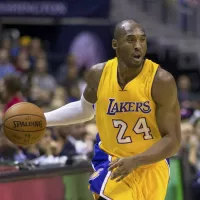
Kobe Bryant a legendary shooting guard dedicated his -year NBA...
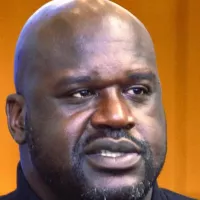
Shaquille O'Neal also known as Shaq is a retired American...
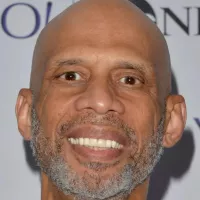
Kareem Abdul-Jabbar is a retired American professional basketball player widely...
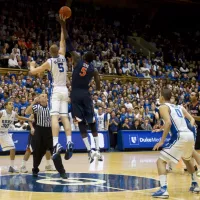
College basketball in the U S is governed by bodies...
The Los Angeles Lakers are a professional basketball team based...
Trending

56 minutes ago Mikko Rantanen absent as Leijonat seek Olympic bronze after loss to USA.

56 minutes ago Aaron Judge, Bryce Harper, and Manny Machado on MLB's Hot-Seat, Insiders Say
2 hours ago Galatasaray announced Konya squad; Konyaspor match live updates and Süper Lig football.
2 hours ago Roman Anthony expected as Red Sox leadoff hitter in 2026, lineup prediction

2 hours ago Alcaraz Dethrones Rublev, Advances to Doha Final with Unbeaten Streak in 2026
2 hours ago Braves face questions, offer lineup sneak peek for Spring Training opener.
Popular

Jesse Jackson is an American civil rights activist politician and...
Randall Adam Fine is an American politician a Republican who...

Barack Obama the th U S President - was the...

Ken Paxton is an American politician and lawyer serving as...

Bernie Sanders is a prominent American politician currently serving as...

Michael Joseph Jackson the King of Pop was a highly...
